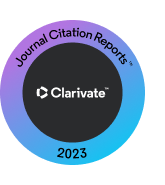CHALLENGES FOR THE MUNICIPALITIES IN THE METROPOLITAN REGION OF SALVADOR, BAHIA STATE, BRAZIL, REGARDING THE ENVIRONMENTAL LICENSING DECENTRALIZATION
DOI:
https://doi.org/10.5327/Z2176-9478201613314Keywords:
licenciamento; meio ambiente; degradação ambiental.Abstract
Based on the economic development model that has been established since the Industrial Revolution, the environmental issue emerges as a global problem, with contradictions between the economic and industrial model and the socioenvironmental reality. This fact has resulted in the demand for practical responses, such as the creation of legal instruments for environmental management. In the Brazilian context, based on the Supplemental Law 140/2011, the municipalities were in charge of legal competence to promote the licensing of activities that could cause a local environmental impact. Thus, this study sought to identify in cities of the Metropolitan Region of Salvador, in Bahia, Brazil, the challenges faced by them after the Supplemental Law. The study showed that 62.0% of cities from the Metropolitan Region of Salvador are empowered to license, however the administrative difficulties presented by environmental agencies tend to compromise the effectiveness of licensing as an environmental protection instrument, which favors the risks of uncontrolled degradation and exploitation of natural resources.Downloads
Download data is not yet available.
Downloads
Published
2016-06-30
How to Cite
Cardoso, L. de L., & Carvalho, A. A. E. S. (2016). CHALLENGES FOR THE MUNICIPALITIES IN THE METROPOLITAN REGION OF SALVADOR, BAHIA STATE, BRAZIL, REGARDING THE ENVIRONMENTAL LICENSING DECENTRALIZATION. Revista Brasileira De Ciências Ambientais, (40), 57–68. https://doi.org/10.5327/Z2176-9478201613314
Issue
Section
Articles
License
Copyright (c) 2016 Revista Brasileira de Ciências Ambientais

This work is licensed under a Creative Commons Attribution 4.0 International License.


























